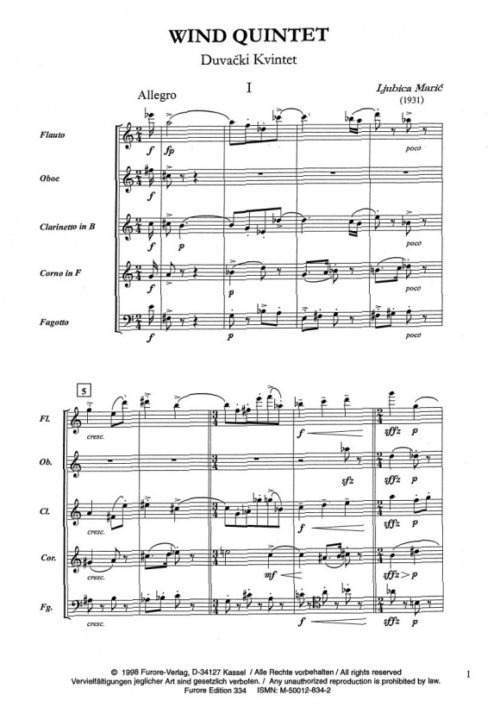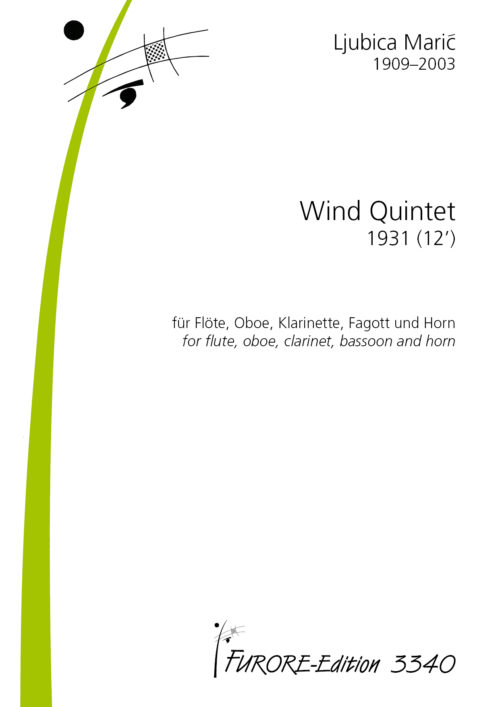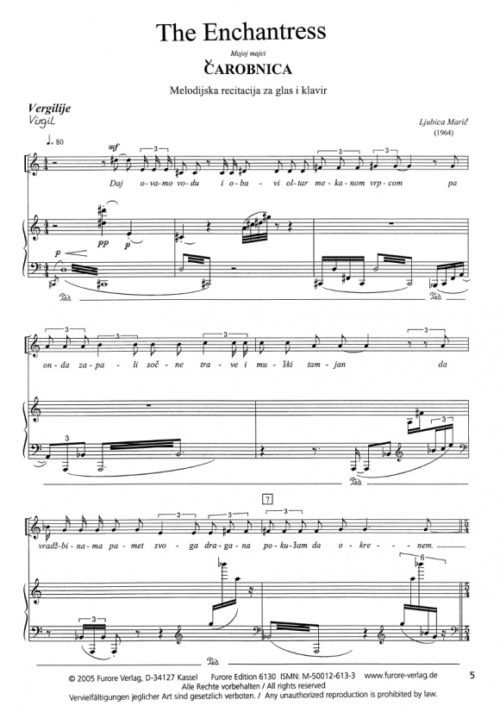Ljubica Maric was born on March 18, 1909 in Kragujevac. She was the most important artist in the 20th century Serbian music. After completing her training in Belgrade, Ljubica Maric pursued her musical education at the State Conservatory in Prague. In 1933 she spent one year studying piano with Emil Seling in Berlin. After her return to Yugoslavia she taught music theory at the Music Academy of Belgrade. In the years after the Second World War Ljubica Maric devoted herself to researching Serbian folk music and ancient orthodox church music; this enabled her mature compositional style to reach complete expression in the 50’s and 60’s. The most important characteristic of her work is the specific synthesis of the heritage of folk music, ancient medieval Byzantine musical thought, and a modern sensibility to sound. ”I have learned everything from folk music“, Ljubica Maric declared. One of the profound spurces of inspiration contributing to the composer’s specific style is the Octoëchos – a volume of medieval Serbian religious songs, based on Byzantine church music and arranged in eight voices (modes) according to their scale structure. She is the very first composer in the history of music who used church melodies (from the Byzantine music) for creating non liturgical compositions. In the 80’s and 90’s Ljubica Marc devoted herself mainly to chamber music, creating exceptional works like “Song for the Flute”, “Invocation”, “Monodia Octoicha”, “From the Darkness Chanting”, “Asymptote”, “Archaia”, “Torso”, which, while plunging in an ever new but recognizable and individual manner into the ancient depths of the past, creatively speaking witness authentically to their own time.
Besides her compositions, the versatile talent of Ljubica Maric is also expressed in her drawings, graphic art and literature (including „Tablice“ [tables], a volume of poetic-philosophic aphorisms). Her works are published by the publishing house Furore Verlag.Ljubica Maric died on September 17, 2003 in Belgrade.
-


fue 11025
pian é forte. Music for piano
Anna Bon di Venezia Barbara Heller Cécile Chaminade Emilie Zumsteeg Fanny Hensel, geb. Mendelssohn Florentine Mulsant Hope Lee Ljubica Maric Louise Farrenc Maria Hester Park Maria Szymanowska Mel(anie) Bonis Ruth Schonthal Sibylle Pomorin Viera Janárceková Vivienne Olive





























































